Nov. 5 choice: 3 Dems, 1 write-in hopeful for Monroe County council quizzed on jail, convention center
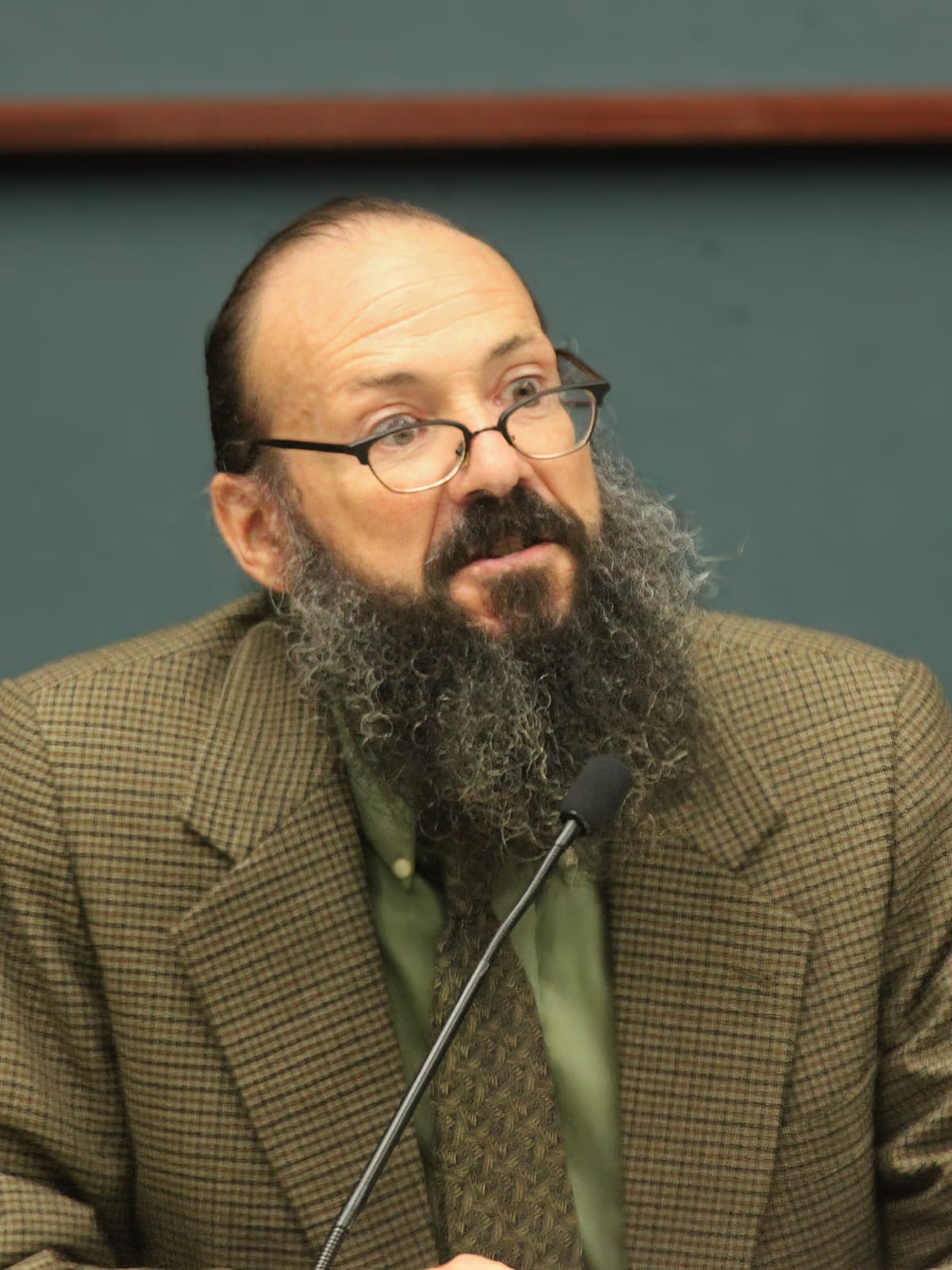
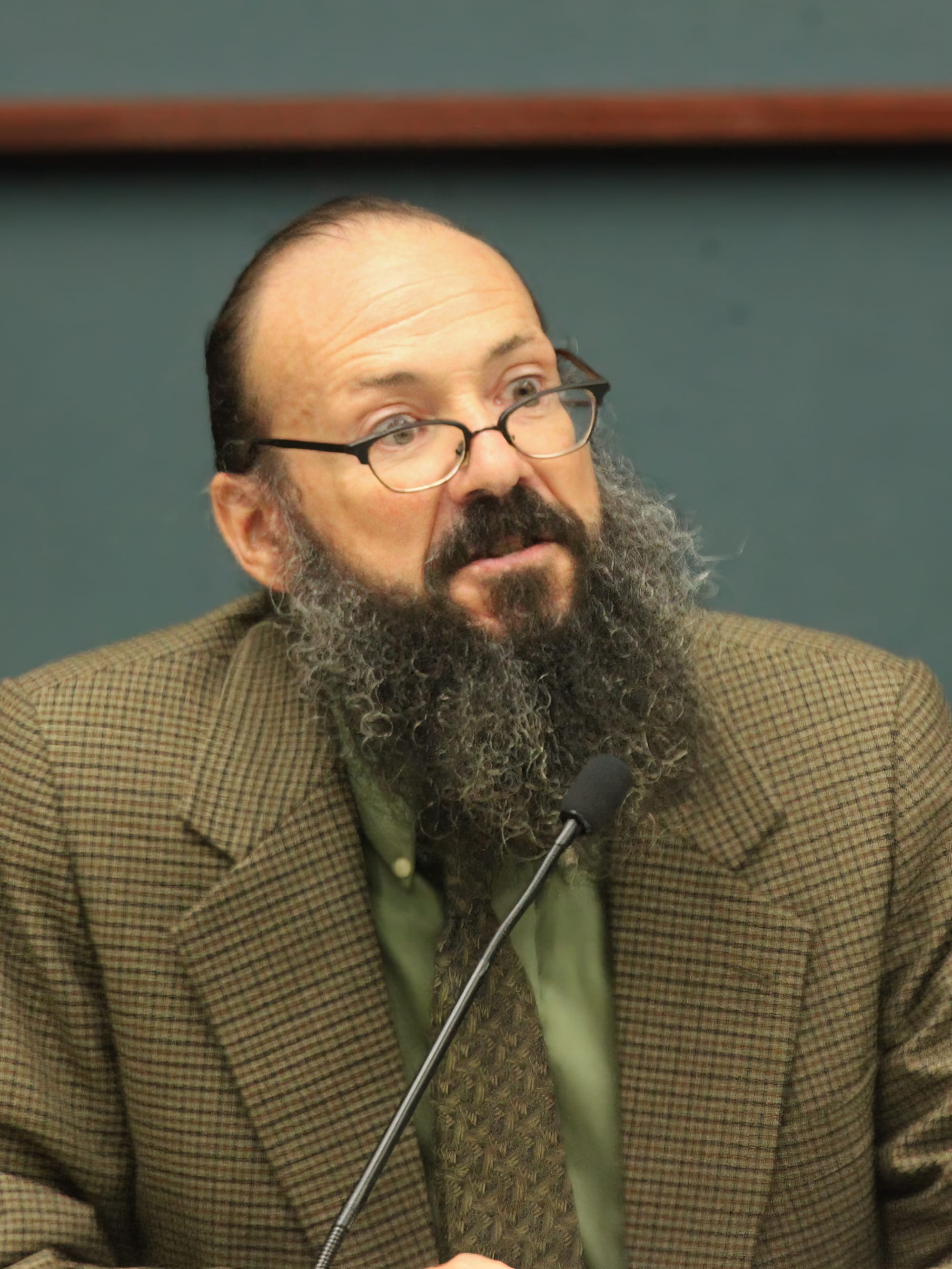
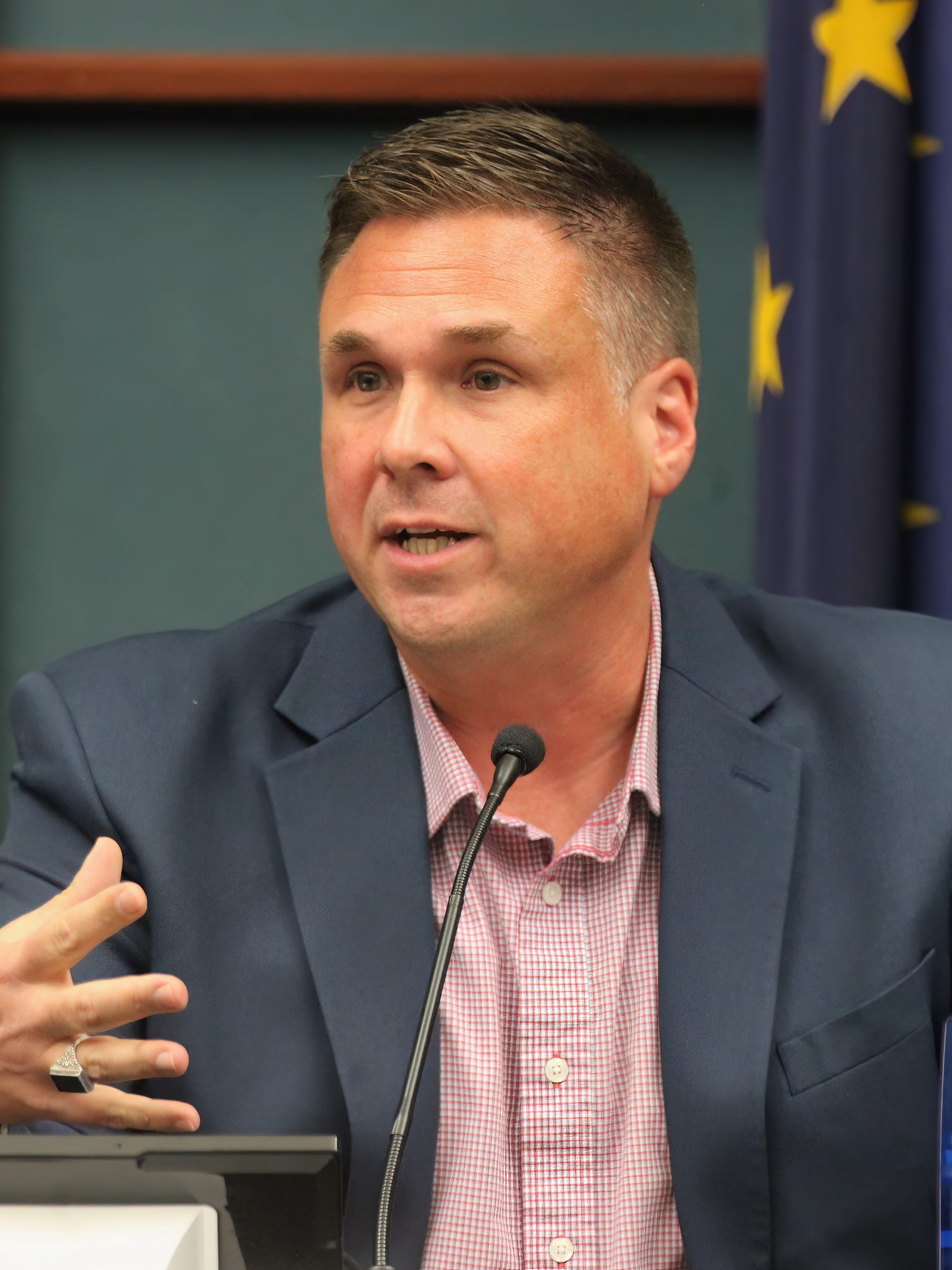
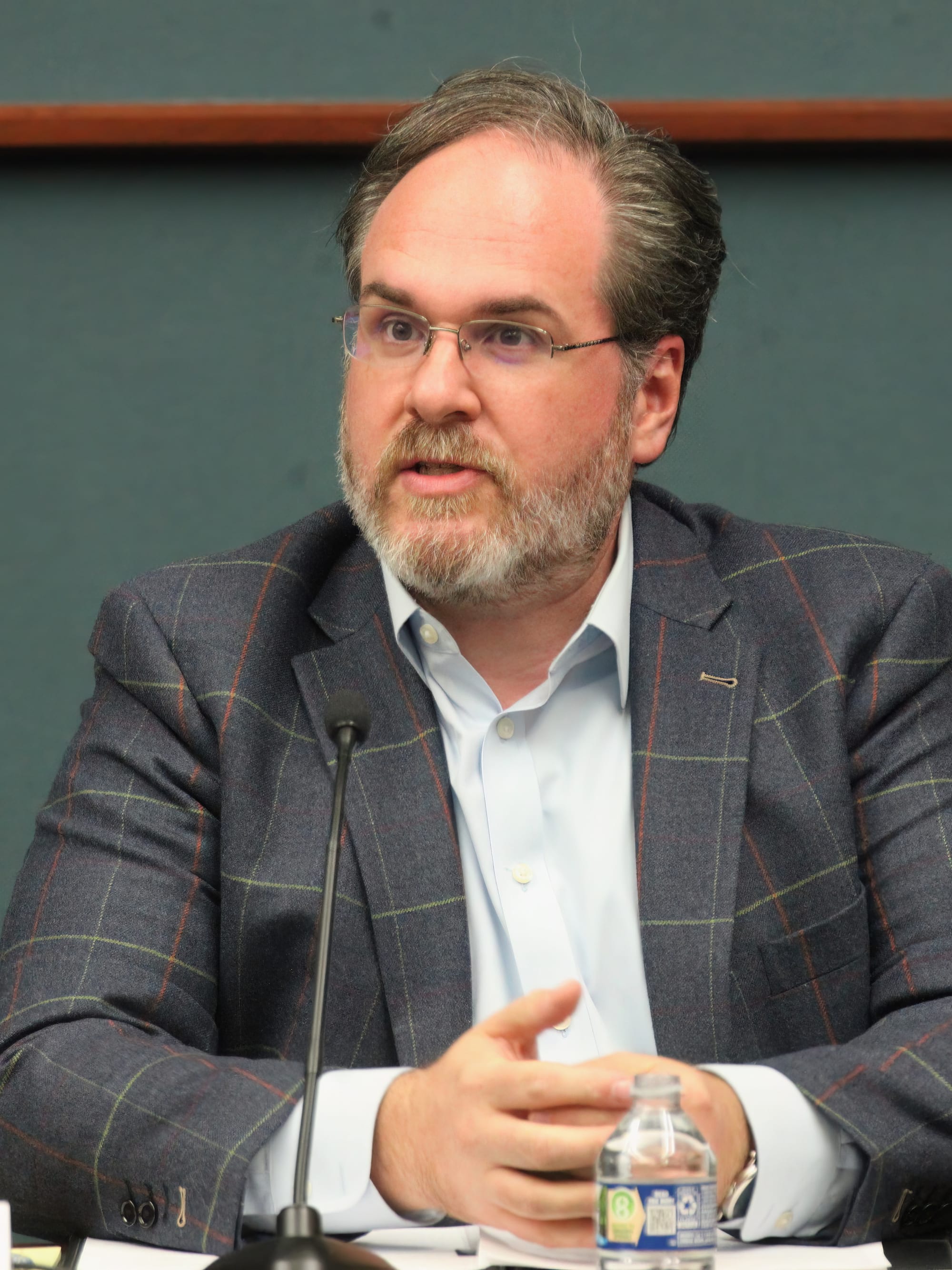
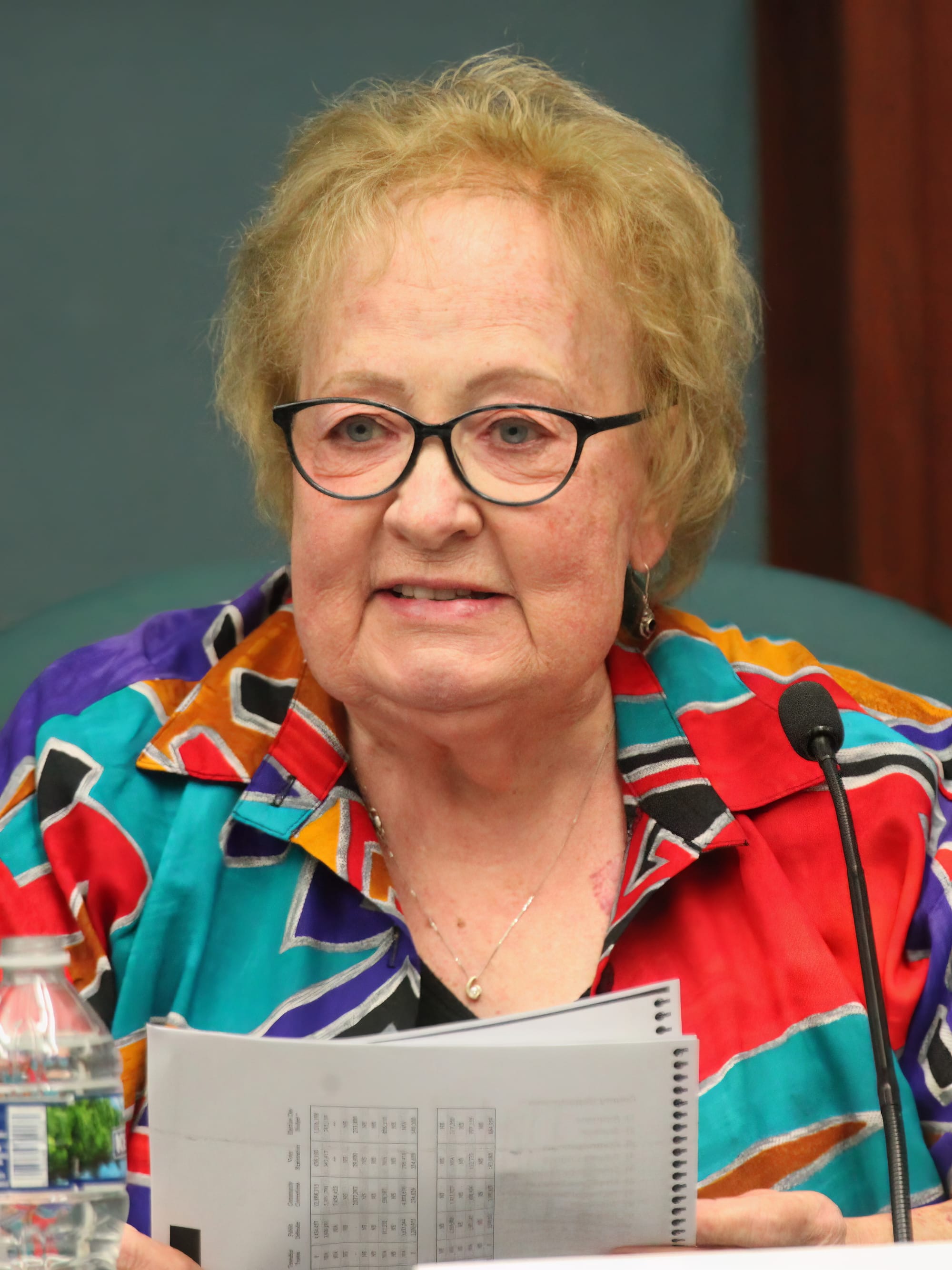
For about 90 minutes on Monday night, four candidates for three at-large county council seats fielded questions during a forum hosted by the League of Women Voters of Bloomington-Monroe County.
Vying for one of the three seats that are up for election on Nov. 5 are incumbent Democrats Trent Deckard and Cheryl Munson. Hoping for their first turn of service on the seven-member county council are Democrat David Henry and registered write-in candidate Joe Davis.
Moderating the forum with a combination of questions prepared in advance and contributed by the audience was Beverly Calender-Anderson, who is the retired director of the community and family resources department (CFRD) at the city of Bloomington.
Topics covered at Tuesday’s forum included: the planning for a new county jail, the convention center expansion, the recent closure of the Futures Family Planning Clinic, and affordable housing.
Basically aligned in their views on the convention center expansion were the three Democrats, who support the concept of the Monroe County capital improvement board (CIB) as a governing agency for the project.
Munson is one of two remaining county councilors who is left from the 2017 edition of the county council that approved the enactment of the food and beverage tax. It’s the proceeds from the tax that are supposed to fund the construction of the convention center expansion.
Besides Munson, the other still-serving councilor who voted for the tax is Geoff McKim. The remaining two members of the four-vote majority that it took to pass the tax were Ryan Cobine and Shelli Yoder.
At Monday’s candidate forum, Munson was supportive of the convention center in general, citing employment in the hospitality hospitality sector as one reason—she and Deckard both described their work as servers early in life.
Munson also pointed out that Monroe County government had purchased land in the downtown area with an eye towards expanding the convention center—not for building a new jail and related justice campus. Munson put it like this: “We funded the purchase of land at the expansion areas, not for the jail, but for an expansion of the convention center.”
Munson was responding to the suggestion from Davis that the land south of 3rd Street, between Walnut Street and College Avenue, across the street from the existing convention center, instead be used to construct a new jail and justice campus.
About the downtown land slated for the location of the expanded convention center, Davis said, “We can make an amazing justice campus and keep everything right here in town.” By saying “in town” Davis was contrasting downtown Bloomington with the location that county commissioners have settled on as the site of the new jail—which is North Park, off SR 46 along Hunter Valley Road.
Appearing on the Wednesday (Sept 25) meeting agenda for county commissioners is a $11.37-million purchase agreement for the property. Under state law, the county council also has to approve the purchase of any new significant property, regardless of how it is funded.
Davis said that the ”ridiculous, wasteful expansion of the Monroe County Convention Center” should be stopped, and that the Monroe County capital improvement board (CIB) should be “kicked to the curb.” The CIB is the public agency that was formed last year in order to oversee the planning and construction of the convention center.
The CIB got a mention from Deckard in the context of a question about the skywalk connector shown in current renderings that will extend from the existing facility across College Avenue to the new building. Deckard said the skywalk is not a “dealbreaker,” because the CIB was formed in order to take the design preferences of elected officials out of the equation.
Deckard prefaced that remark with the softener “with all due respect to my city council colleagues,” which was an allusion to the strong objection to a skywalk connection that Bloomington city council members Matt Flaherty and Kate Rosenbarger have expressed.
Davis described the skywalk as a “hamster tunnel,” saying it was a dealbreaker—but his objection was not based solely on the skywalk. Davis pointed to a community survey commissioned by the city of Bloomington that indicates a lack of support among residents for the convention center.
In the city’s four community surveys, which have been done every two years (2017, 2019, 2021, and 2023) using a statistically representative sample of residents, the survey has shown that somewhere between 16 percent and 20 percent of Bloomington residents think the convention center expansion project is “essential or very important” to address.
Henry challenged the context provided by the survey question, which puts the convention center expansion in the context of other possible priorities like a citywide high-speed fiber network, development of new housing in the Hopewell neighborhood and job creation in the Trades District. About the methodology, Henry said, “It’s not a good survey instrument.”
Henry continued, “When you compare apples to oranges in survey questions like that, of course, people are going to go with things that are priorities in the community.” He added, “So I think if we’re going to start doing survey work around economic development, we need to ask questions that compare apples to apples on those questions.”
Deckard said that even those who strongly opposed the enactment of the food and beverage tax in 2017 were now vocal about the need to go ahead and get the convention center expansion built, given that the tax is being collected.
A question about the jail’s purpose drew out one common thread among the four candidates—that the best approach is to prevent people from entering the justice system.
Munson put it like this: “If we work towards restorative justice… it will cost less to operate our entire justice system. Munson cited the problem-solving courts in Monroe County that are already operating—which are specialty courts that handle cases involving those with substance use disorder, mental illness, or issues related to reentry, and military veterans.
Munson also pointed to the IRACS (Integrated Reentry and Correctional Support) program, which Monroe County officials are working to get established locally, as it is in other locations elsewhere in the state.
Deckard noted that there are those who have committed crimes who need to be incarcerated to keep others and themselves safe. Like Munson, Deckard also pointed to the problem-solving courts as part of the solution—such speciality courts have only a 4-percent recidivism rate, according to Deckard, which he called “mind blowing.”
Henry pointed to the perspective of the Democratic Party: “We need to practice, as good Democrats, at least from my party’s perspective, restorative justice—which means balancing the equation.” Henry suggested that the economic development local income tax (ED LIT) revenue could be tapped to ensure that non law-enforcement intervention activities are wrapped around the court system and criminal justice facility. That way, diversion and alternatives to incarceration can be provided before people are put into the jail system, Henry said.
Davis described the purpose of the jail as providing constitutional humane care for those who are waiting for a court date and for those who have been sentenced to serve their time. But he continued, “We need to keep people from getting into jail in the first place. We need to promote services that will keep the recidivism from happening.” Like Munson, he cited the problem-solving courts as an important part of the solution, saying the budget for such courts should be increased.
The three Democrats at Monday night’s forum were the top vote getters in the party’s May 7 primary in a four-way race that included Matt Caldie.
Incumbent Democrat Geoff McKim is not seeking re-election. The Republican Party did not field any candidates.
It’s the top three vote getters who win election to the three seats. Straight-ticket votes for a party don’t apply to that party’s candidates in at-large county council races, which means voters have to mark each one individually.
All other things being equal, that quirk of election law makes at-large races the best chance for a write-in or independent candidate to win—because candidates affiliated with a party don’t benefit from straight-ticket votes.
The last day to register to vote in the Nov. 5 election is Oct. 7. Early voting starts on Oct. 8. The early voting location for Monroe County is the election operations building (former NAPA building) at 3rd and Walnut Streets, across from the downtown transit center.




Comments ()